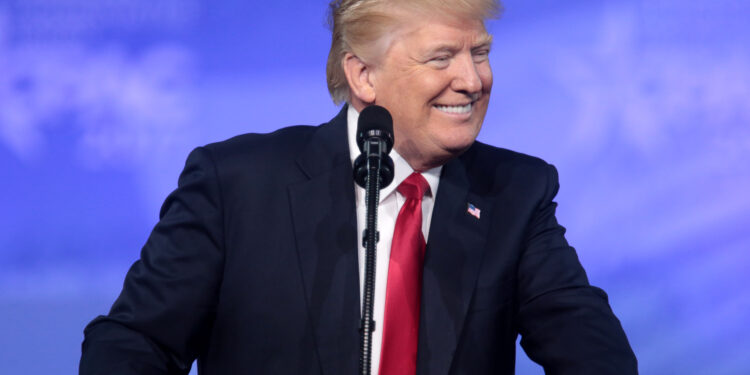
Former President Donald Trump has thrown his weight behind supporting in vitro fertilization (IVF), urging the Alabama legislature to address the repercussions of a recent state Supreme Court ruling that prompted certain clinics to suspend treatments.
In a post on Truth Social, Trump emphasized the Republican Party’s alignment with the “Miracle of Life,” advocating for the rights of mothers, fathers, and their children. This marks Trump‘s first commentary on an issue that has stirred debate within the GOP.
Some Republicans view the state Supreme Court’s ruling as an unexpected outcome of the U.S. Supreme Court’s 2022 Dobbs decision, which granted states the authority to impose restrictions on abortion. Trump, highlighting his role in appointing three justices who supported the Dobbs’ decision, has underscored his anti-abortion stance. However, he voiced his disagreement with the Alabama court’s interpretation that embryos should be considered children under state law.
Trump’s post on Truth Social conveyed his strong support for IVF, aligning with the sentiments of the majority of Americans, including Republicans, conservatives, Christians, and pro-life individuals. He called on the Alabama Legislature to swiftly find a resolution to preserve IVF accessibility in the state.
President Joe Biden’s campaign criticized Trump’s statement, attributing the loss of access to fertility treatment in Alabama to Trump’s influence on Supreme Court decisions. Biden-Harris campaign manager Julie Chavez Rodriguez emphasized that Trump’s actions, including overturning Roe v. Wade, have led to restrictions on women’s reproductive choices and attacks on contraception.
Alabama Governor Kay Ivey, a Republican, echoed Trump’s sentiment, expressing her desire for the legislature to send a bill safeguarding IVF treatments. She emphasized the state’s commitment to fostering a culture of life, which includes supporting couples utilizing IVF to become parents.
Legislators in Alabama’s House have already taken steps by filing legislation aimed at protecting IVF services, underscoring the ongoing efforts to address the impact of the recent court ruling on fertility treatments in the state.

The recent Alabama Supreme Court ruling has sparked significant political and ideological debates, particularly surrounding the definition and legal status of fertilized human eggs or embryos existing outside the uterus. The court ruling explicitly states, “Under no circumstances shall any fertilized human egg or human embryo that exists in any form outside of the uterus of a human body be considered an unborn child, a minor child, a natural person, or any other term that connotes a human being for any purpose under state law.”
Republican state Senator Tim Melson has revealed his intention to introduce similar legislation in the upper chamber, aligning with the sentiments expressed in the court ruling.
Former President Donald Trump, in his first commentary on the matter, threw his support behind in vitro fertilization (IVF), emphasizing the Republican Party’s dedication to the “Miracle of Life.” Meanwhile, former U.N. Ambassador Nikki Haley, Trump’s lone remaining rival for the Republican presidential nomination, initially grappled with defining her position but ultimately opposed the Alabama court decision.
President Joe Biden, seeking re-election, strongly denounced the IVF ruling, highlighting the broader implications on women’s reproductive rights. Biden condemned the Alabama court’s decision, connecting it directly to the Dobbs decision that overturned Roe vs. Wade, a historic ruling protecting abortion rights. Vice President Kamala Harris attributed the situation to Trump’s appointment of Supreme Court justices with the intention of overturning Roe v. Wade.
Biden has pledged to advocate for the restoration of these rights at the federal level, emphasizing the urgency of protecting women’s ability to make decisions about their reproductive health. The political landscape surrounding these issues remains contentious, with varying perspectives on the intersection of legal, ethical, and personal considerations.










_after_crash_landing-360x180.jpg)
































